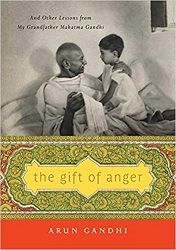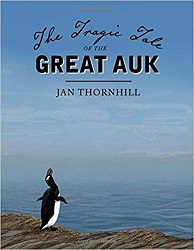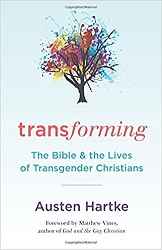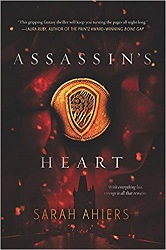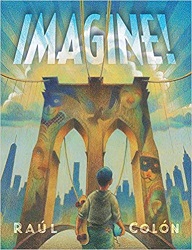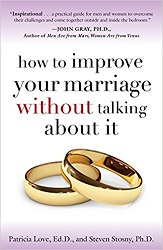 How to Improve Your Marriage Without Talking About It
How to Improve Your Marriage Without Talking About It
Finding Love Beyond Words
by Patricia Love, EdD, and Steven Stosny, PhD
Broadway Books, 2007. 224 pages.
Starred Review
2007 Sonderbooks Standout: #1, Relationships
Okay, why am I reviewing a book about marriage today, when I’ve been divorced for 8 years, separated for 13 years, and with no prospects or evidence that I’ll ever marry again, besides being too busy reading for the Newbery committee to do any dating – or to have time for more than one book for adults at a time?
Well, I’m not sure I completely know the answer to that. It’s partly that it’s a Steven Stosny book. I’d recently reread some others, and they’re so full of wisdom. I’ve also spent a lot of time alone while doing so much reading – but since I don’t have time to date, maybe reading about marriage satisfies a little bit of that loneliness. I’m hoping I can learn some things while my emotions aren’t invested and busy triggering and blinding me – so maybe I won’t make the same mistakes the next time.
This book also has some super interesting things to think about, many ideas about men and women and how we respond and think differently. Everything they say about women rings true, so I suspect what they say about men is also true, and I’m still hoping I’ll absorb some of that.
Besides, the first time I read this book, when I still hoped against hope that my own marriage would be healed, I was taking grad school classes for my Master’s in Library Science, and didn’t have time to write or post a review. When I named it as a 2007 Sonderbooks Standout, I promised to write a review some day. So I’m finally keeping that promise for this book!
Besides, it’s an outstanding book! I read it too late to help my marriage, but I will always wonder if I’d read it sooner and tried some of these things, if something might have changed. As it is, if there’s anyone I can point to this book before it’s too late, that would be a wonderful outcome of writing this review, and nothing would make me happier.
The main premise of the book is similar to the book Love and Respect, by Emerson Eggerichs, which says that a man’s deepest need is respect and a woman’s deepest need is love. Or John Eldredge’s books, as in the book Captivating, that says women need to answer the question, “Am I lovely? Am I worthy of love?” and men need to answer the question, “Do I have what it takes?”
But Doctors Love and Stosny take a different approach. And those books I mentioned are from a Christian perspective and refer to the Bible to make their points. This is a secular book and refers to research, but I think it’s the flip side of the same ideas.
They say that a woman’s deepest vulnerability is fear, and a man’s deepest vulnerability is shame.
Most of the book is about how this falls out and how we can overcome it and use these vulnerabilities to connect rather than resent each other. But let me also talk about the promise in the title – these methods do not require lots of talking about it or building your “communication skills.”
They are not disconnected because they have poor communication; they have poor communication because they are disconnected.
The ideas for connecting are excellent – I wish I could try them out! But what’s helpful for me and can teach me even when I’m not in a relationship is better understanding a man’s perspective, better understanding what things I do that would trigger shame in my partner – despite my best intentions.
I was really surprised by the idea that a woman sharing unhappiness with her husband can make him feel like he’s failing to protect her or she doesn’t appreciate all she does.
Women build alliances with other women by doing what they learned in early childhood: exposing vulnerability. Marlene doesn’t have to mention to her girlfriends that she feels sad, unhappy, lonely, or isolated. They infer it from her body language or tone of voice, just as she can tell if something is wrong with them. As soon as one woman senses a friend in emotional need, they become more interested and emotionally invested in each other. But what do you think happens when Marlene tells Mark that she feels bad? (She has to tell him – his defense against feeling failure and inadequacy has blinded him to her emotional world by this time.) You guessed it – once she forces him to face her vulnerability, he feels inadequate as a protector. He responds with typical shame-avoidant behavior: impatience, distractedness, defensiveness, resentment, anger, criticism, or “advice” that sounds an awful lot like telling her what to do.
Here’s why talking doesn’t help:
One reason that talking about your relationship has not helped is that fear and shame keep you from hearing each other, regardless of how much “active listening” or “mirroring” you try to do. The prerequisite for listening is feeling safe, and you cannot feel safe when the threat of fear or shame hangs over your head. The threat is so dreadful that the limbic system, the part of your brain in charge of your safety, overrides any form of rational thinking. Almost everything you hear invokes fear or shame.
This is also why things sometimes change drastically when a couple gets married. Or why someone outside the marriage suddenly seems much more understanding. If a male friend talks about quitting his job and starting a business, I might admire him for his vision, for living out his principles. But if my husband does that? Oh, you can be sure my fears will get triggered! And if I express my concerns or start asking questions, “Have you thought about this….?” or offering suggestions or even criticism – You better believe I’ll be triggering his shame. [I can’t even begin to express what a comfort it was to me that when my then-husband retired from the military and was looking for a job, I was not in his life and was not in a place to give any input whatsoever. I could all too easily imagine how those conversations would have gone. This book explains why.]
This dynamic is explained in a chapter addressed to men. Again, I hadn’t realized how much a man’s identity is tied to making his wife happy – in a way that’s not as true when they are dating.
There was a time when your partner, before she was your partner, talked to you about various things that made her feel anxious or insecure. You most likely responded with a sense of protectiveness. You knew intuitively that she was upset. If she felt disregarded, you paid more attention to her. If she felt unimportant, you showed her that she was important to you. If she felt accused, you reassured her. If she felt guilty, you helped her feel better. If she felt devalued, you valued her more. If she felt rejected, you accepted her; if she felt powerless, you tried to empower her; if she felt inadequate, you helped her appreciate her competence; and if she felt unlovable, you loved her more. You did all this out of a natural desire to protect the person you loved.
You fell in love because you were able to connect, and you were able to connect because you felt protective. It started to go wrong when you began to see your impulse to take care of her, which made you feel great while dating, as costing too much time or money in a committed love relationship. You probably had good reasons for starting to feel that way, but as long as you feel that way, you will not find viable solutions to time and money problems. In other words, things will certainly get worse until you decide to be protective of your partner’s fear as you used to be; and in the long run, this will cost far less in time and money than a disconnected relationship and divorce.
Of course, this switch in how you reacted to her anxiety was confusing to her, to say the least. She was doing the same thing that used to invoke your protectiveness – worrying or expressing needs – but now she provoked your anger and resentment. It’s as if once you got married you expected that she would never again feel bad, or at least not show that she did. When she did show it, you interpreted her complaints as an indictment of your failure as a provider.
There’s a lot more about how things break down. Before rereading this, I would have said – no, I have actually said – that I don’t have much of a problem with fear.
But I came to see that I work so hard at managing my fear, I’m not even conscious of it. That’s what was going on when I’d give my husband career advice, or over-manage one of the many times we moved. That may be behind my tendency to plan way ahead, to over-pack for trips. I can so easily visualize every What-if scenario. And of course there’s physical fear. Women are trained from childhood not to go for a walk alone at night, for example. I am smaller than most adults, and there’s some fear that comes with that. I plan around it.
And of course the deepest fear is of not being loved, and ending my life alone and abandoned. When that fear’s triggered – well, is it any wonder your partner might feel like you don’t trust him as a lover? Once his shame is triggered, if he withdraws to feel better, my fear’s going to increase, and so on.
But the main thrust of this book is about overcoming those vulnerabilities, seeing your partner’s perspective, and being able to connect. Besides all the insights, there are some wonderful techniques that can build your connection to each other and remind you of your love for each other. Like I said, I really hope I get a chance some day to try these techniques out!
Here’s the last paragraph in the book:
The most profound moments between two people occur when their emotions resonate, soothing their different vulnerabilities and raising their hearts to simple enjoyment. When emotional connection goes deeper than talking, women overcome the stifling limitations of their anxieties, and men abandon destructive shame-avoiding behavior. The best protections from fear and shame are compassion, appreciation, and a sense of connection that is so deep, flexible, and resilient that it creates love beyond words.
I like that the title doesn’t say anything about fixing a bad marriage. This book offers a way to improve your marriage. Even good marriages can stand a little improvement! I hope some of my friends will try it out! And I will plan to reread it if I ever get married again. Until then, I’ve got some food for thought, and I’m mulling over what parts of my life are affected by fear I didn’t even realize I had.
Buy from Amazon.com
Find this review on Sonderbooks at: www.sonderbooks.com/Nonfiction/how_to_improve_your_marriage.html
Disclosure: I am an Amazon Affiliate, and will earn a small percentage if you order a book on Amazon after clicking through from my site.
Source: This review is based on a library book from Fairfax County Public Library.
Disclaimer: I am a professional librarian, but I maintain my website and blogs on my own time. The views expressed are solely my own, and in no way represent the official views of my employer or of any committee or group of which I am part.
What did you think of this book?
